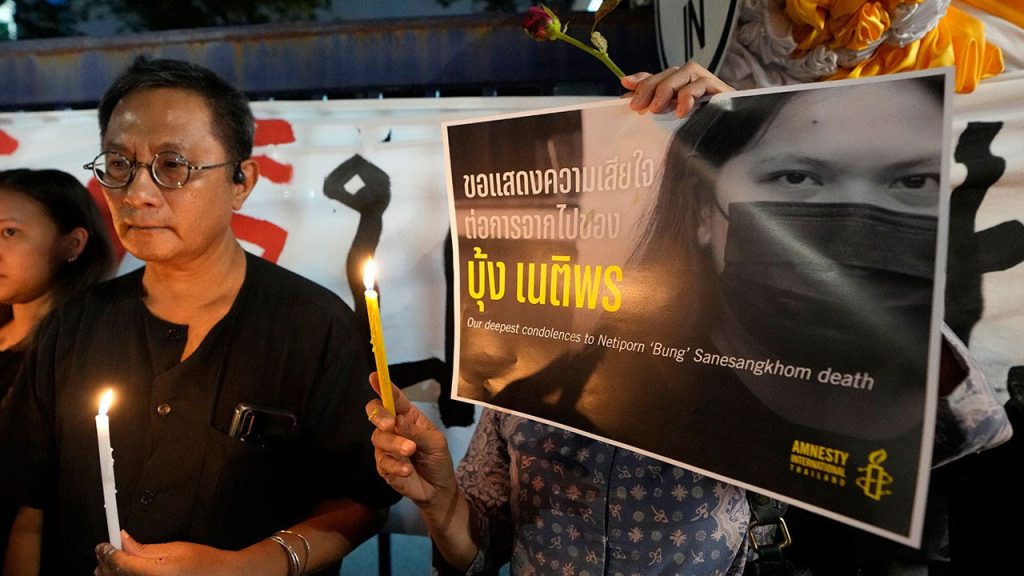Netiporn Sanesangkhom, a 28-year-old Thai activist, died in a prison hospital on Tuesday following a hunger strike. She was a member of Thaluwang, an activist group known for demanding monarchy reform. Netiporn’s death is the first known instance of a political activist in Thailand dying during a hunger strike. Thaluwang has been bold and aggressive in their campaigns for reform of the monarchy and the abolition of the law that makes it illegal to defame members of the royal family. The group openly criticizes Thailand’s monarchy and challenges the taboo surrounding criticism of the institution that was once considered untouchable.
Criticism of the monarchy in Thailand has been historically taboo, with insulting or defaming key royal family members being punishable by up to 15 years in prison under the lese majeste law, known as Article 112. The law had been rarely enforced until student-led pro-democracy protests began in 2020, challenging the monarchy openly. However, the protest movement faded due to government harassment and the COVID-19 pandemic. Netiporn was one of over 270 activists charged under the royal defamation law since the protests of 2020-21. Her death highlights the risks faced by activists who challenge the status quo in Thailand.
Netiporn began her hunger strike after being detained in January for her activism. She had two charges of lese majeste pending against her, both related to conducting polls about the royal family in public spaces. Despite multiple attempts to resuscitate her after suffering cardiac arrest, she was pronounced dead just before noon. Netiporn’s lawyers had sought to transfer her to a university hospital for treatment, but their requests were not granted. The lack of standard treatment and support for activists in the Thai justice system has raised concerns about the treatment of political prisoners in the country.
Thaluwang has been at the forefront of protests calling not only for monarchy reform but also changes in the justice system and an end to political persecution through the courts. The group has also demanded the rejection of Thailand’s application to join the U.N. Human Rights Council. Thailand announced its bid for a seat on the council for the 2025-2027 term, despite criticisms from Human Rights Watch and other organizations about the country’s use of arbitrary arrests and pretrial detention to punish critics of the monarchy. The discrepancy between Thailand’s ambitions as a human rights defender on the international stage and the reality of law enforcement within the country has raised concerns about the government’s commitment to protecting human rights.
Netiporn’s death serves as a stark reminder of the risks faced by activists in Thailand who challenge the monarchy and advocate for political reform. The continued enforcement of the lese majeste law and the lack of standard treatment for political prisoners have drawn criticism from human rights organizations. The activism of groups like Thaluwang reflects a growing movement within Thailand to push for change and challenge the status quo. Despite the challenges and risks they face, these activists are determined to continue their fight for democracy and human rights in Thailand. The international community will be watching closely as the country navigates its bid for a seat on the U.N. Human Rights Council and addresses the concerns raised by Netiporn’s tragic death.


